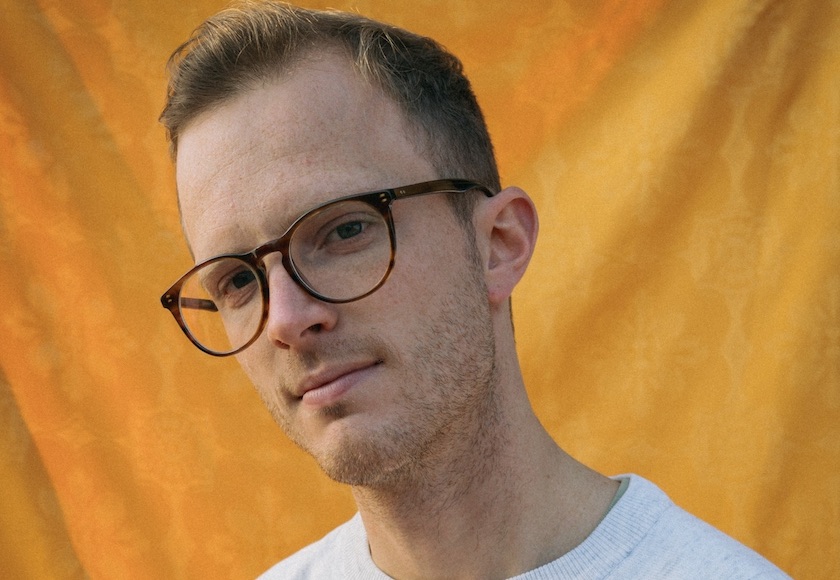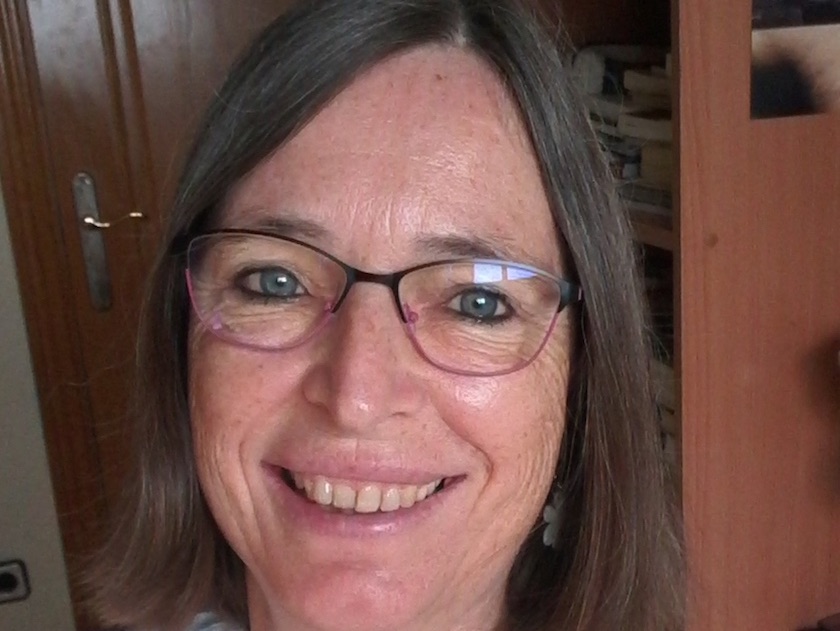For 7 months, Tim had digestive problems and fatigue, and still struggles with concentration. His mother also had to adapt her lifestyle to the long-term effects of Covid-19.
![It is estimated that up to 10% of those infected with the Covid-19 have have suffered persistent effects of the virus. / Photo: [link]Gabriella Clare Marino[/link].](https://cms.evangelicalfocus.com/upload/imagenes/62f6314066903_gabriella-clare-marino-PneNm_dMD-0-unsplashCropped.jpg) It is estimated that up to 10% of those infected with the Covid-19 have have suffered persistent effects of the virus. / Photo: [link]Gabriella Clare Marino[/link].
It is estimated that up to 10% of those infected with the Covid-19 have have suffered persistent effects of the virus. / Photo: [link]Gabriella Clare Marino[/link].
Tim Py (28 years old) was infected with Covid-19 only days before Carla, also at the beginning of March 2020, when the majority of the population in Spain had not yet been confined. “The first infections were starting to arrive from Italy. I was at a youth camp in Soria (a city in the north of Spain), giving some talks”, he recalls.
“The first two weeks were like having a strong flu, but without any further problems or need for hospitalisation. I spent it at home, with my family, taking supplements and vitamins, and resting a lot”, Tim says.
The problems came when he realised that he was not fully recovering, even though the weeks continued to go by. “Often I would feel like I was getting better, but then the symptoms would come back and I would be totally exhausted and sick for three or four days. That cycle kept repeating itself over the weeks, and then the months, so we started to worry and after half a year we heard about the ‘persistent Covid’ collective, people talking about cases like mine”.

[photo_footer]Tim Py. / Photo: Isaac Vasquez, Facebook[/photo_footer].
Tim spent 7 months “with quite severe digestive problems, debilitating fatigue, nausea and great inability to concentrate”. “After that, my health slowly improved, but with several relapses. The stomach and nausea improved, but the physical and mental fatigue and difficulty concentrating persisted until after two years”, he explains.
[destacate]“The physical and mental fatigue, as well as the difficulty concentrating, persisted until after two years”[/destacate]. “I am now at 90% of my physical capacity, but only 70% cognitively. Physically I have improved a lot and only occasionally I feel some fatigue. Cognitively I find it hard to concentrate for long periods of time, or to multitask, although I have recovered quite a bit”.
Like Carla (see first part of this article), Tim has also undergone blood ozone treatment over the past few months. “I have noticed its effect and it has led to an improvement in my ability to exert myself and concentrate. This treatment is private and quite expensive, as there is no treatment for Long Covid through the public health system, and in some places not even a diagnosis”, Tim laments.
Sigrid Py (59) became infected with the coronavirus shortly after her son Tim. “It was like a very strong flu with a lot of tiredness, a lot of headache, stomach aches, some swelling of the throat, some difficulty breathing, sometimes a little fever and a slight dry cough that persisted after several weeks, and for which I went to a health centre to have my lungs checked, although apparently there was nothing wrong with me”, she says.

[photo_footer]Sigrid Py. / Photo: Escuela Evangélica de Teología[/photo_footer].
Although she felt better after three weeks, for Sigrid the feeling of fatigue and sickness continued even as the months passed. “What persisted was an unusual vulnerability to wind and fresh air, which easily gave me a cough again, and some prickling in my heart for which I consulted a cardiologist, as well as some cognitive fatigue”, she says. “Four months after infection, we took a trip to Germany by plane, which made me unusually tired”, she adds. Shortly afterwards, she suffered “a new episode of fatigue, which this time ended in diplopia (double vision)”. “Thankfully, this distressing reaction was absorbed over the next few weeks. But the fragility, in terms of strength, remained and lasted for more than a year. I had developed post-viral chronic fatigue, which was diagnosed as such in the summer of 2021”.
[destacate]“On a psychological level, I experienced the lack of energy and initiative very badly. I didn’t feel like myself” [/destacate]Although Sigrid suffered from symptoms such as constant “vulnerability to any physical, mental or emotional effort or overload”, in combination with “headaches, sometimes stomach pains, digestive problems, discomfort in different parts of the body, insomnia, cognitive fatigue and 'mental fog', lack of energy” or even “an acute ear infection that ended in chronic tinnitus”, she has often been told that her case was too mild or that she did not need rehabilitation.
“Thank God, two years and three months later, I feel much better, perhaps because of the time that has passed, the adaptation of my lifestyle, and the amount of supplements and hydrogenated water I have been taking to strengthen the immune system and fight fatigue”, she says.
But how to live with such symptoms and the feeling of fatigue and vulnerability on a daily basis? Just as the virus has affected people differently, taking the lives of 110,775 people in Spain alone, each person with Long Covid has adapted their routine to the new reality in their own way.
[destacate]“I get very tired of engaging in conversations and seeing people, although I have always been very social” [/destacate]For Carla Martínez, it is something that has affected “all areas, from driving, making the bed or reading, to working or studying”. In fact, she has had to pause and postpone the master’s degree she was studying. “I have many friends I have not been able to see since before the pandemic. I get very tired of engaging in conversations and seeing people, although I have always been very social. The energy of those of us with ‘persistent covid’ is limited. If I read a book I might not be able to do anything else that afternoon. To see friends I have to rest days before and days after in order to compensate for the effort. I have to force myself to do everything little by little, which is difficult in a society where everything goes so fast”, she says.
So says her husband, Chris Dirks. “Carla’s illness has meant a change in our dynamic as a couple and in my responsibilities as a husband. It's hard to remember all the phases, but for me, it’s now about being sensitive to her condition every day and caring for her in her weakness. There are days when she has a little more energy and it’s exciting to go for a walk or do an activity, and there are days when the main event is cooking a recipe together. I’ve had to learn to walk slowly, not to multitask, not to switch quickly from one topic of conversation to another. We have had to simplify our lives”, Dirk explains.
Now, he adds, “I know what things drain her energy and how I can help her rest. When she needs to eat, or take medication, or sit for a while, and if we are doing things at a pace that is right for her. I’ve also had to learn not to overwhelm her with my questions and concerns, but to adjust to what she tells me she needs”, Chris adds.
In the case of Tim, a missionary in Spain, director of the Christian Surfers Spain ministry and currently collaborating with the ‘Hogar Asubio’ in Cantabria, Long Covid has disrupted his usual activity, affecting above all his ability to concentrate. “On a relational level it has been a great challenge, especially during the months when I was worse”, he adds. “I wanted to do things with friends, to go out, to distract myself, but I didn’t have the energy for it. I ended up not enjoying those times and feeling the need to rest, even though I had done virtually no effort. It was very frustrating”.
Sigrid, a counsellor, has been particularly affected by the chronic fatigue, which “makes her unable to lead the life she had before, which is difficult to accept”, she says. “I have had to postpone different projects, turn down some ministry opportunities, give up making plans and limit myself to doing the bare essentials every day, both at home, in ministry and in my family relationships”, she says. “On a psychological level, I experienced the lack of energy and initiative very badly. I didn’t feel like myself”, she remarks.
This is the second part of three of an in-depth article on the effects of Long Covid. Part one was published here and part three will be available on Evangelical Focus before the end of August.
[donate]

Las opiniones vertidas por nuestros colaboradores se realizan a nivel personal, pudiendo coincidir o no con la postura de la dirección de Protestante Digital.
Si quieres comentar o